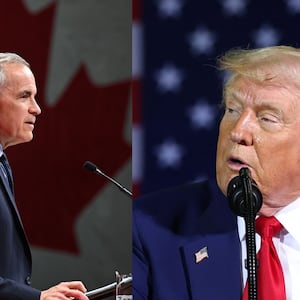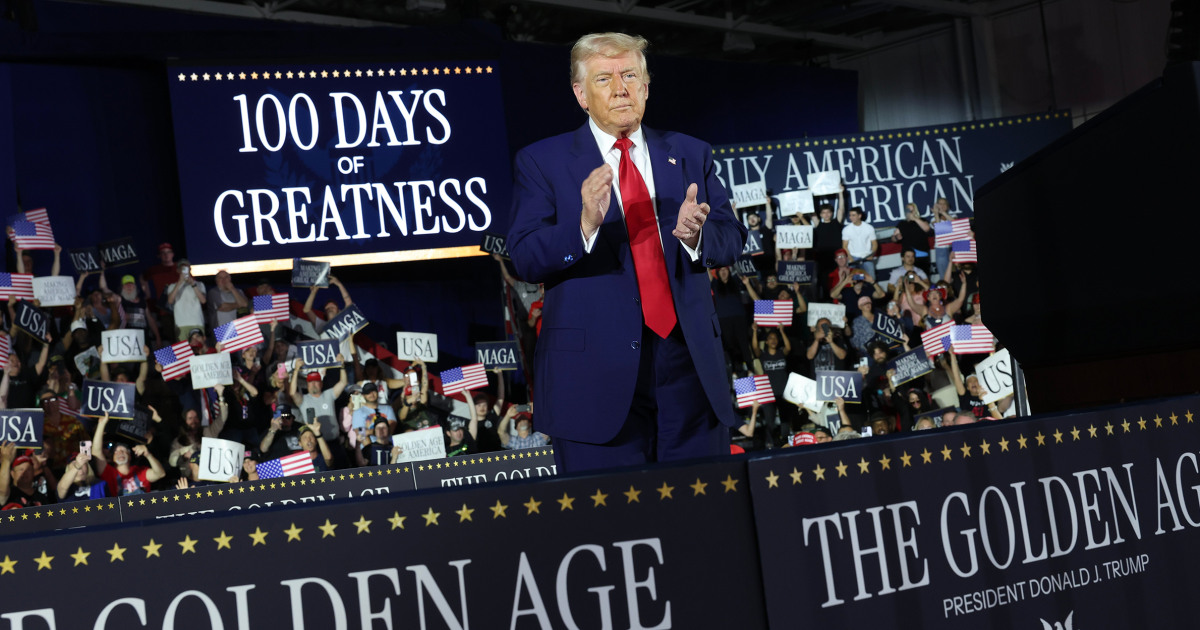Academia’s leftward drift is a problem. It has undermined universities’ core missions of accumulating and disseminating ideas. Surveys indicate that significant fractions of students and professors are afraid to tackle controversial topics, with moderates and conservatives most likely to say they are uncomfortable speaking their mind.
Censorship — including self-censorship — has damaged scholarly rigor and eroded public trust in academic expertise. Understandably, conservatives are looking for ways to restore some ideological balance to college campuses so that higher education serves the entire country, including the half that votes Republican. But the Trump administration is going about it the wrong way.

Its all-out attack on universities seems vindictive, destructive and counterproductive. The White House announced this month that it would pull $400 million in government grants and contracts from Columbia University because the school had failed to control antisemitism on campus. Last week, a follow-up letter from the administration said the school could get the money back if it met certain requirements, including centralizing disciplinary action under Columbia’s president and placing its Middle Eastern, South Asian and African Studies department under “academic receivership.
” This is part of a broader attempt to use the government’s regulatory and funding powers to exert control over universities. ( On Friday, the university agreed to create an internal security force, ban the wearing of face masks for the most part, and appoint a senior vice provost to oversee the Middle Eastern, South Asian and African Studies department.) To be sure, Columbia’s flaccid response to last year’s protests over the war in Gaza, which at times crossed into vandalism or antisemitism, warrants scrutiny to ensure that the civil rights of Jewish students are protected as enthusiastically as those of any other minority.
Nevertheless, singling out a specific university department and interfering with the school’s internal organizational chart are violations of academic freedom. Columbia’s lapses also do not merit an abrupt halt to funding for the school’s vital medical and scientific research — which is what $250 million of the $400 million supported. The scientists who have been affected were not responsible for the university’s shortcomings.
This unwarranted action threatens to undermine the United States’ world-leading research apparatus. U.S.
research universities, and the federal funding that supports them, are one major reason Americans have collected more Nobel Prizes than citizens of any other country. They also help make the United States the world’s innovation engine and the top destination for foreign students. No other country is as adept at converting raw human talent and ideas into cutting-edge products.
Research universities anchor innovation clusters such as Silicon Valley, which in turn fuel the country’s economic growth. This engine is too valuable to risk for a mere political project. If a study is cut off before its results are known, what valuable medical and technological advances might be lost? If the world’s most promising researchers decide to pursue their studies elsewhere — someplace where the government won’t yank their funding for perceived offenses over which they have no control — what will America lose? Trump administration officials should also consider the precedent they are creating.
How might it be used when Democrats return to office, as they eventually will? The administration should further ask itself what will be left of a university when it is done using its crowbar — not only the research apparatus but also the classrooms and auditoriums where professors teach students to grapple with humanity’s biggest issues. It is true that many schools should have done more to ensure students felt comfortable airing all points of view. But the solution is not to apply similar political pressure from a different direction.
Florida pioneered the kind of crackdown the Trump administration is attempting, and now more left-leaning students and professors in that state have begun describing exactly the kind of speech-chilling atmosphere that conservatives have been complaining about for years. Professors there have steered students away from discussing topics that seem forbidden, including “ intersectionality,” and are afraid that students are recording them, the Wall Street Journal has reported. Students voiced similar fears that classmates would broadcast their remarks on social media, and one student publication trimmed its coverage to protect its funding.
Conservatives have recognized in their own experience why this is unacceptable. Universities cannot form good scholars, or citizens, if they are not free to explore the full universe of ideas. Some of these may be bad or misguided, and some may be dangerous.
But universities exist to separate truth from falsehood and wisdom from folly. Open debate, unhindered by fear of reprisal, is the only way to achieve this..
Politics

OUTSIDE VIEW: Restoring balance to college curriculum requires a more measured approach

Academia’s leftward drift is a problem. It has undermined universities’ core missions of accumulating and disseminating ideas. Surveys indicate that significant fractions of students and professors are afraid to tackle controversial topics, with moderates and conservatives most likely to say...















